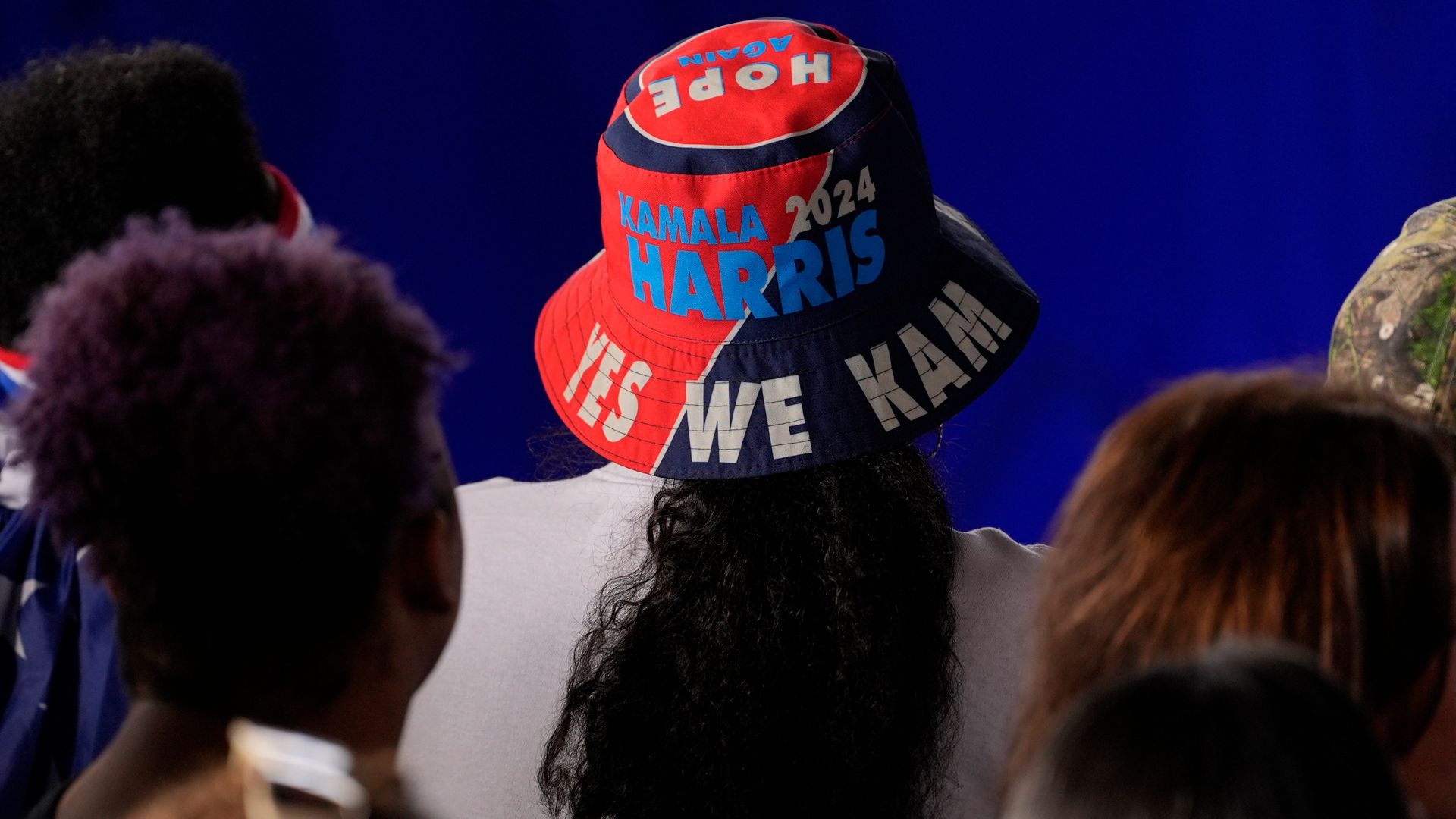A movement which uses heterosexual celibacy as a political statement has been taking off on social media after Donald Trump’s US election win.
Kamala Harris dedicated much of her election campaign to getting the female vote, with particular focus on abortion rights, with measures aimed at either protecting existing abortion rights or expanding them also on the ballot in 10 US states.
Exit polls show she got the majority of US female votes as expected, but nowhere near enough for her to clinch the presidency.
The victor, Donald Trump, offered mixed messages during his campaign on where he stood on abortion – but his three Supreme Court appointees were part of a majority which overturned Roe vs Wade in 2022 – stripping women of the legal right to seek an abortion.
His second election win has led some women to talk about joining the 4B movement – an unofficial group which originated in South Korea that has seen women cut out sexual relationships with men as a protest against perceived misogyny and oppression.
4B was attracting minimal attention on social media in the US in the run-up to the election, but interest spiked after Mr Trump’s victory, with more than 50,000 mentions on X on 6 November from American accounts. Since election day, X posts mentioning 4B have been engaged with more than 1 million times, potentially reaching more than 45 million accounts.
Please use Chrome browser for a more accessible video player
Its exact origins aren’t known, though it’s believed to have started in 2019 at around the time conservative President Yoon Suk Yeol was elected.
Although it started as a small movement, it has spread across Asia and around the world, becoming a popular talking point on social media.
4B is shorthand for four Korean words that all start with “bi” – meaning “no”, according to journalist Anna Louie Sussman, who covered the movement last year for The Cut magazine.
These are the four words, which are essentially pledges of the movement:
• Bihon: the refusal of heterosexual marriage
• Bichulsan: the refusal of childbirth
• Biyeonae: abstaining from dating men
• Bisekseu: the rejection of heterosexual sexual relationships as a whole
Some women who consider themselves a part of the movement have also taken to shaving their heads and refusing to wear makeup as a means of distancing themselves from society’s sexualisation of women.
One tweet with hundreds of thousands of likes, posted on 6 November, urges women in the US to “start considering the 4B movement like the women in South Korea and give America a severely sharp birth rate decline”, adding: “We can’t let these men have the last laugh… we need to bite back.”
How women voted in the US election
The exit polls conducted by Sky News’ US partner NBC News show women made up 53% of voters in total.
The majority of female voters, 53%, voted for Ms Harris, while 45% voted for Mr Trump. Men voted 55% in favour of Mr Trump and 42% for Ms Harris.
But Ms Harris actually had less support from women in the 2024 election than Democrat Joe Biden had in 2020, when he got 55% of the female vote compared to Mr Trump’s 43%.
Please use Chrome browser for a more accessible video player
Read more:
US talk show host on verge of tears after Trump win
What is Project 2025?
Be the first to get Breaking News
Install the Sky News app for free
Experts say her level of support from women was unremarkable, pointing to the fact that the majority of women have preferred the Democratic candidate in every presidential election since 1996, according to the Center for American Women in Politics at Rutgers University.
The polls also show that white women, who made up 37% of voters, voted 53% in favour of Mr Trump and 45% for Ms Harris.
Women of all other races voted more for Ms Harris, most notably black women, who gave her 91% of their votes – but they make up just 7% of total voters.






